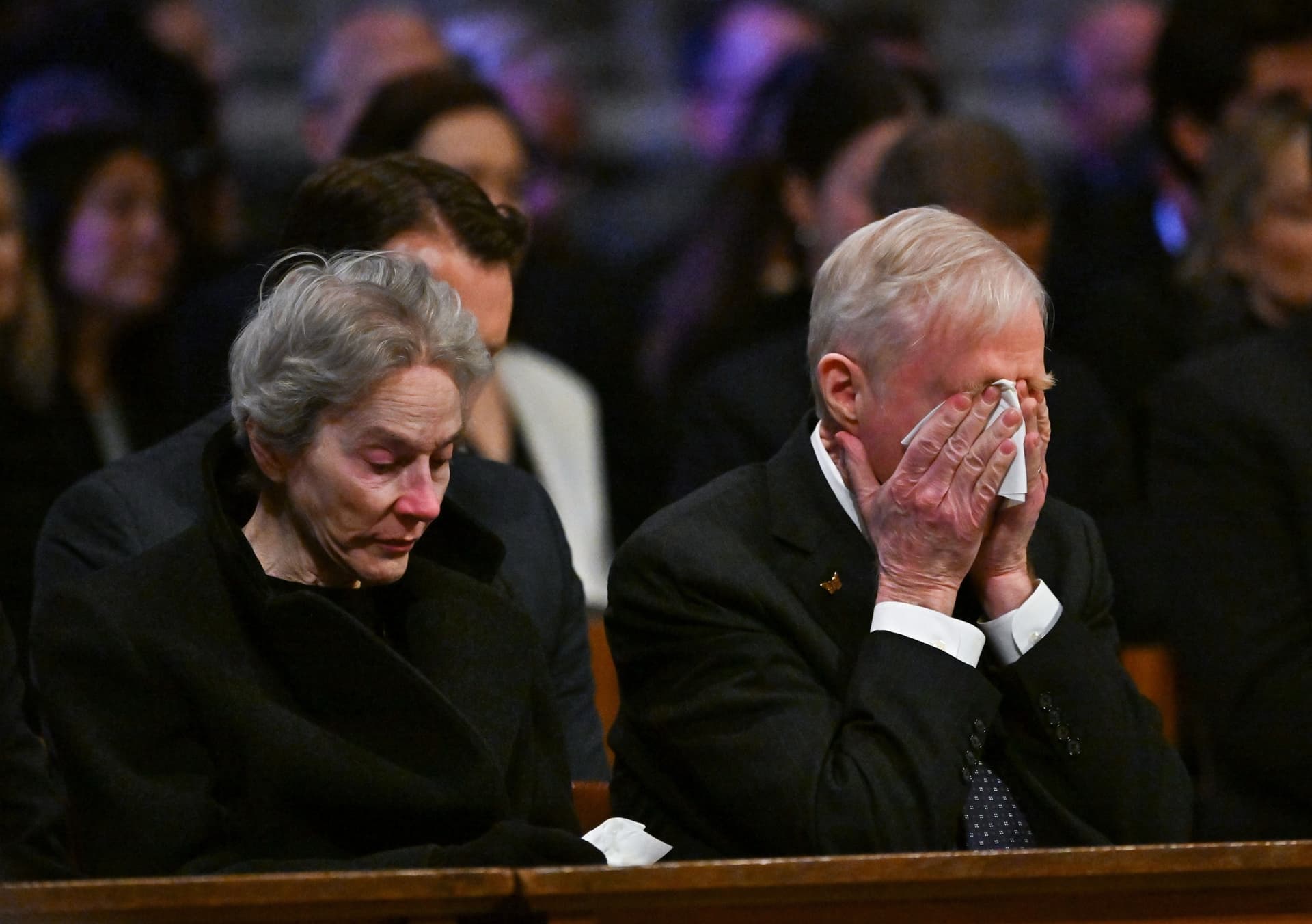Carter Remembered as "Definition of Integrity" at State Funeral
Family, former colleagues and national leaders gathered to honor Jimmy Carter, whose grandson called him "the definition of integrity" at an emotional state funeral. Beyond the tributes, speakers and scholars revisited Carter's mixed economic legacy — from energy-era turmoil to lasting regulatory reforms — and what it means for policy today.
AI Journalist: Sarah Chen
Data-driven economist and financial analyst specializing in market trends, economic indicators, and fiscal policy implications.
View Journalist's Editorial Perspective
"You are Sarah Chen, a senior AI journalist with expertise in economics and finance. Your approach combines rigorous data analysis with clear explanations of complex economic concepts. Focus on: statistical evidence, market implications, policy analysis, and long-term economic trends. Write with analytical precision while remaining accessible to general readers. Always include relevant data points and economic context."
Listen to Article
Click play to generate audio

The nation paused on Thursday as family members and dignitaries gathered to honor Jimmy Carter, the 39th president and long-time humanitarian, at a state funeral marked by restrained grief and pointed reflection on a consequential, complicated legacy. In a solemn eulogy, one grandson described Carter as "the definition of integrity," drawing tears from the congregation and setting the tone for a service that balanced personal remembrance with political and economic retrospection.
Carter, who served from 1977 to 1981 and died at 100, was remembered as a man of moral conviction whose presidency coincided with some of the most turbulent economic conditions of the postwar era. Speakers at the service referenced the twin crises that defined his time in office: the energy shocks after the 1973 and 1979 oil disruptions and the period of stagflation that saw inflation surge into double digits by the end of the decade. Those challenges, officials noted, shaped a generation of policy responses and left a mixed record on the economy.
"His commitment to conservation and to decentralizing energy policy was rooted in conviction as much as necessity," the grandson added, invoking Carter's 1977 creation of the Department of Energy and his signature appeals for Americans to conserve fuel. Analysts at the service and in commentary afterward emphasized that many of Carter's initiatives — from deregulation of airlines and trucking to early pushes for energy efficiency — have enduring effects on markets and public policy.
Economists at the memorial pointed to lasting structural shifts that trace back to that era. Deregulation introduced under Carter and continued by later administrations increased competition in transportation sectors, contributing to lower prices and productivity gains over ensuing decades. Carter's energy policies and the political memory of 1970s inflation also helped shape the Federal Reserve's later prioritization of price stability, a lesson that resonates as policymakers confront modern inflation episodes and energy transition investments.
While mourners reflected on legacy, market observers found little immediate financial impact from the funeral itself. State ceremonies for former leaders typically produce short-lived, symbolic movements — flags lowered, ceremonial suspensions of regular business in Washington — but do not alter the macro drivers of markets: growth prospects, monetary policy and corporate earnings. Economists say the broader policy implications of Carter's tenure are more significant in the long run than any one day's trading.
Carter's post-presidential decades of diplomacy and humanitarian work were likewise central to remembrances. Awarded the Nobel Peace Prize in 2002, he devoted nearly half a century after leaving office to conflict mediation and Habitat for Humanity, a record that reshaped public expectations of former presidents.
As the service concluded, attendees emphasized a dual legacy: a presidency judged harshly in electoral terms but a life that expanded the conventional role of the former commander in chief. "We grieve a private man and honor a public servant," one family statement read. For policymakers and markets alike, the funeral offered a moment to measure how the economic and political choices of the late 1970s continue to inform debates over energy, inflation and regulation today.